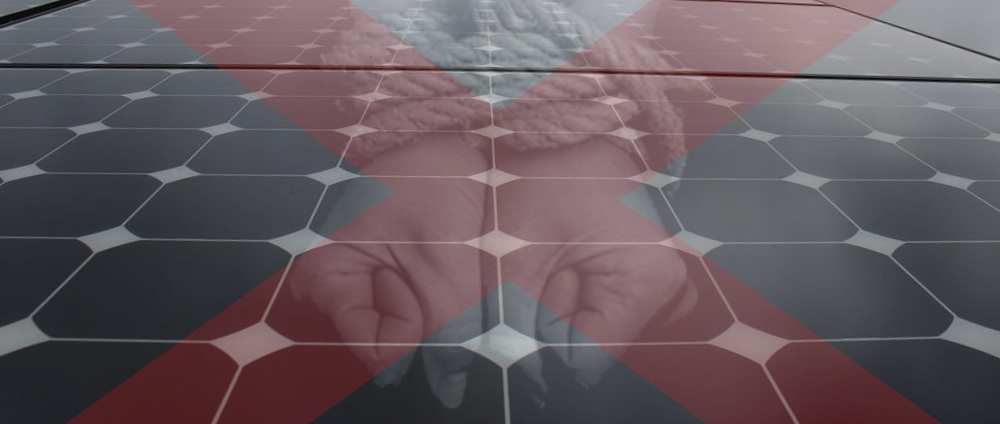Amendment to the GB Energy Bill to prevent investment in panels produced by modern slavery
[edit] Announcement
ECA has welcomed the move made by Ed Miliband on 23 April, 2025 to propose an amendment to the GB Energy Bill. The amendment would prevent the nationally-owned energy company from investing in solar panels produced by modern slavery.
The Government had feared introducing restrictions to the solar supply chain would slow down the transition to renewable energy generation, which is central to its Clean Power 2030 mission. The Solar Stewardship Initiative (SSI), who work across the global solar value chain to foster responsible production, sourcing and stewardship of materials, are confident the supply of panels will continue to meet growing demand.
By the end of this year, SSI-certified manufacturing facilities will produce 100 gigawatts of solar panels each year, all produced without the use of forced labour. That is around five times more than the UK’s existing solar panels. If the UK’s solar industry continues in alignment with counterparts in Europe, the Clean Power 2030 target will remain on course.
Many concerns about forced labour arise from the exploitation of the Uyghur population in Xinjiang where around a third of polysilicon, the raw material for solar panels, is produced. China currently dominates the market for green energy technology. Britain will therefore need to pivot solar investment to other parts of the world, including from a small but growing number of British suppliers.
The GB Energy Bill has already passed through the House of Commons and is due to be voted on by the House of Lords soon. Peers from the three main parties joined forces with Labour back-benchers to lobby the Secretary of State to introduce the amendment preventing forced labour in the supply chain.
[edit] Modern slavery
Modern slavery is the recruitment and harbouring of humans through the use of force, abuse, deception, and coercion for exploitative purposes. It is estimated that there are more than 45 million people subject to modern slavery in the world today.
The construction sector is particularly vulnerable to modern slavery because of its extended supply chain, opaque procurement processes, skills shortage and high demand for migrant labour. This means that supply chains can conceal human rights abuses and exploitation.
The Modern Slavery Act was introduced in March 2015 to tackle slavery in the UK and in the supply chains of major UK corporations. It aims to prevent modern slavery in organisations by increasing the transparency of company practices.
This article appears on the ECA news and blog site as 'GB Energy to invest in responsibly produced Solar Panels' dated 23 April, 2025.
--ECA
[edit] Related articles on Designing Buildings
- Construction recruitment agency.
- Corporate social responsibility in construction.
- Equal opportunities policy.
- Equality Act.
- Ethical labour sourcing standard.
- Ethics and the engineer.
- Ethics in construction.
- Human resource management.
- Illegal.
- Large scale solar thermal energy.
- Modern slavery.
- Resource management.
- Solar Stewardship Initiative.
- Solar energy.
- Solar gain in buildings.
- Solar photovoltaics.
- Solar Stewardship Initiative.
- Solar thermal systems.
Featured articles and news
UKCW London to tackle sector’s most pressing issues
AI and skills development, ecology and the environment, policy and planning and more.
Managing building safety risks
Across an existing residential portfolio; a client's perspective.
ECA support for Gate Safe’s Safe School Gates Campaign.
Core construction skills explained
Preparing for a career in construction.
Retrofitting for resilience with the Leicester Resilience Hub
Community-serving facilities, enhanced as support and essential services for climate-related disruptions.
Some of the articles relating to water, here to browse. Any missing?
Recognisable Gothic characters, designed to dramatically spout water away from buildings.
A case study and a warning to would-be developers
Creating four dwellings... after half a century of doing this job, why, oh why, is it so difficult?
Reform of the fire engineering profession
Fire Engineers Advisory Panel: Authoritative Statement, reactions and next steps.
Restoration and renewal of the Palace of Westminster
A complex project of cultural significance from full decant to EMI, opportunities and a potential a way forward.
Apprenticeships and the responsibility we share
Perspectives from the CIOB President as National Apprentice Week comes to a close.
The first line of defence against rain, wind and snow.
Building Safety recap January, 2026
What we missed at the end of last year, and at the start of this...
National Apprenticeship Week 2026, 9-15 Feb
Shining a light on the positive impacts for businesses, their apprentices and the wider economy alike.
Applications and benefits of acoustic flooring
From commercial to retail.
From solid to sprung and ribbed to raised.
Strengthening industry collaboration in Hong Kong
Hong Kong Institute of Construction and The Chartered Institute of Building sign Memorandum of Understanding.
A detailed description from the experts at Cornish Lime.

























